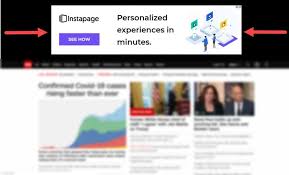The Power of Digital PR in Today’s Business Landscape
In the fast-paced digital age, public relations (PR) has evolved significantly, with the emergence of digital PR playing a crucial role in shaping brand narratives and influencing consumer perceptions. Digital PR combines traditional PR practices with digital marketing strategies to create a powerful and impactful communication approach that resonates with modern audiences.
Building Online Presence
One of the key advantages of digital PR is its ability to help businesses build a strong online presence. By leveraging various digital channels such as social media, online publications, and influencer networks, companies can reach a wider audience and engage with their target market in real-time. This increased visibility not only enhances brand awareness but also fosters trust and credibility among consumers.
Enhancing Brand Reputation
Effective digital PR strategies can help companies manage their brand reputation proactively. By monitoring online conversations, addressing customer feedback promptly, and sharing positive stories about the brand, businesses can shape a positive perception in the minds of their audience. This proactive approach to reputation management can mitigate potential crises and strengthen brand loyalty.
Driving Traffic and Conversions
Digital PR plays a vital role in driving traffic to company websites and increasing conversions. Through strategic content placement on high-authority websites, collaborations with influencers, and engaging social media campaigns, businesses can attract qualified leads and convert them into loyal customers. By creating compelling stories that resonate with their target audience, companies can drive engagement and ultimately boost sales.
Measuring Impact
One of the significant advantages of digital PR is its measurability. With advanced analytics tools, businesses can track the performance of their PR campaigns in real-time, monitor key metrics such as website traffic, social media engagement, and conversion rates. This data-driven approach allows companies to assess the impact of their efforts accurately and make informed decisions to optimise future strategies.
In conclusion, digital PR has become an indispensable tool for businesses looking to succeed in today’s competitive landscape. By harnessing the power of digital channels to tell compelling stories, engage with audiences effectively, and build lasting relationships with customers, companies can elevate their brand presence and achieve sustainable growth in the digital era.
Understanding Digital PR: Key Questions and Insights for Enhancing Online Presence
- What is digital PR and how does it differ from traditional PR?
- How can digital PR help businesses improve their online visibility?
- What are the key benefits of incorporating digital PR into a marketing strategy?
- How can companies measure the effectiveness of their digital PR campaigns?
- What role does social media play in digital PR efforts?
- Can digital PR influence consumer perceptions and brand reputation?
What is digital PR and how does it differ from traditional PR?
Digital PR is a modern approach to public relations that leverages digital channels such as social media, online publications, and influencer networks to enhance brand visibility and reputation in the digital landscape. Unlike traditional PR, which primarily focuses on securing media coverage through press releases and traditional media outlets, digital PR places a strong emphasis on engaging with audiences in real-time, creating shareable content, and building relationships with online influencers. The key difference lies in the interactive nature of digital PR, allowing businesses to reach a wider audience, measure campaign performance accurately, and adapt strategies based on real-time data insights.
How can digital PR help businesses improve their online visibility?
Digital PR plays a pivotal role in enhancing businesses’ online visibility by leveraging a combination of traditional PR tactics and digital marketing strategies. Through strategic content placement on reputable online platforms, collaborations with influencers, engaging social media campaigns, and proactive reputation management, digital PR helps businesses reach a broader audience and establish a strong presence in the digital landscape. By crafting compelling narratives that resonate with their target market and utilising data-driven approaches to track performance metrics, businesses can effectively boost their online visibility, attract quality leads, and ultimately drive organic growth in the competitive digital realm.
What are the key benefits of incorporating digital PR into a marketing strategy?
Incorporating digital PR into a marketing strategy offers a multitude of key benefits for businesses in the modern landscape. By leveraging digital channels such as social media, online publications, and influencer networks, companies can significantly enhance their online presence, reaching a wider audience and engaging with them in real-time. This increased visibility not only boosts brand awareness but also fosters credibility and trust among consumers. Additionally, digital PR enables businesses to proactively manage their brand reputation, drive traffic to their websites, increase conversions, and measure the impact of their efforts accurately through advanced analytics tools. Overall, integrating digital PR into a marketing strategy empowers companies to build stronger relationships with their target audience and achieve sustainable growth in the ever-evolving digital realm.
How can companies measure the effectiveness of their digital PR campaigns?
Measuring the effectiveness of digital PR campaigns is essential for companies to evaluate the impact of their efforts and make informed decisions for future strategies. Companies can measure the effectiveness of their digital PR campaigns through various key performance indicators (KPIs) such as website traffic, social media engagement, conversion rates, brand mentions, backlinks, and media coverage. By analysing these metrics using advanced analytics tools, businesses can gain valuable insights into the reach, engagement, and overall success of their campaigns. This data-driven approach enables companies to assess the ROI of their digital PR efforts accurately and refine their tactics to maximise results and achieve their communication objectives.
What role does social media play in digital PR efforts?
Social media plays a pivotal role in digital PR efforts by serving as a powerful platform for engaging with audiences, amplifying brand messaging, and building relationships with customers. Through social media channels such as Facebook, Twitter, LinkedIn, and Instagram, businesses can share compelling content, interact with followers in real-time, and monitor conversations to gauge sentiment towards their brand. Social media also enables companies to reach a wider audience, drive website traffic, and enhance brand visibility through targeted advertising and influencer partnerships. By leveraging the dynamic nature of social media, businesses can strengthen their digital PR strategies and create meaningful connections with their target market.
Can digital PR influence consumer perceptions and brand reputation?
Digital PR has a significant impact on consumer perceptions and brand reputation. By leveraging digital channels such as social media, online publications, and influencer networks, companies can shape the narrative surrounding their brand and engage with their target audience in real-time. Through strategic storytelling, proactive reputation management, and engaging content placement, digital PR can influence consumer perceptions positively, build trust and credibility, and ultimately enhance brand reputation in the competitive digital landscape.




